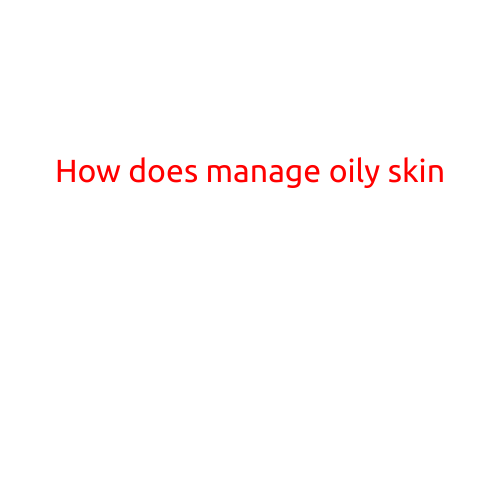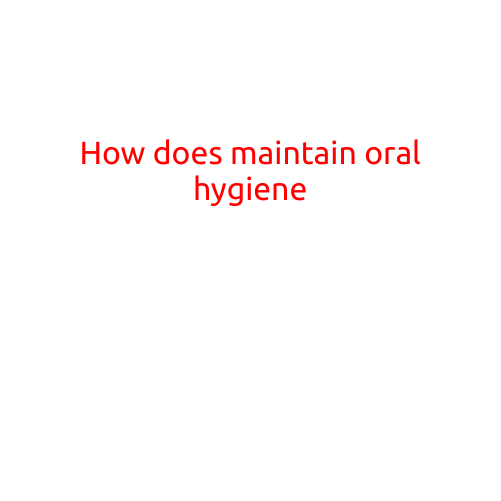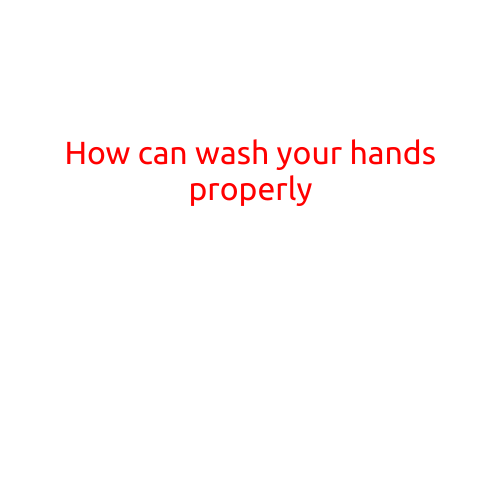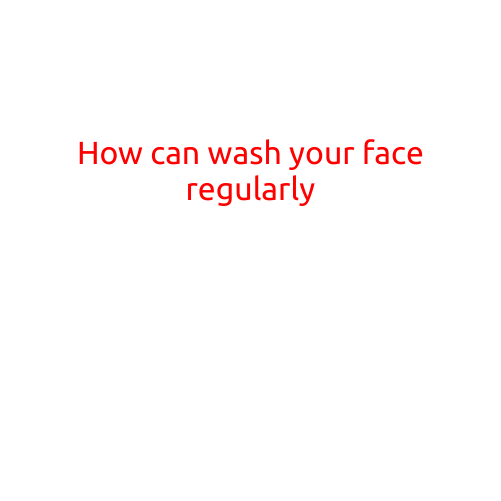
How to Manage Oily Skin: Tips and Tricks for a Healthy, Glowing Complexion
Oily skin can be a real challenge to manage, but with the right techniques and products, it’s possible to keep your skin looking healthy, radiant, and shine-free. In this article, we’ll explore the causes of oily skin, how to diagnose and treat it, and provide you with expert tips on how to manage oily skin for a flawless complexion.
Understanding Oily Skin: Causes and Diagnosis
Oily skin, also known as seborrhea, occurs when the skin produces an excessive amount of sebum, the natural oil produced by the skin’s sebaceous glands. This can lead to a greasy, shiny appearance, as well as clogged pores and acne.
There are several factors that can contribute to oily skin, including:
- Genetics: If your parents had oily skin, you may be more likely to experience it as well.
- Hormonal fluctuations: Changes in hormone levels, such as those experienced during puberty, menopause, or pregnancy, can lead to an increase in sebum production.
- Poor skincare habits: Using harsh cleansers or not removing makeup properly can cause the skin to produce more oil to compensate.
- Environmental factors: Exposure to pollution, humidity, and certain chemicals can also contribute to oily skin.
If you’re unsure whether you have oily skin or not, look for the following signs:
- Shine or oiliness on the forehead, nose, and chin
- Blackheads or whiteheads on the nose and chin
- Large pores on the skin
- Acne and blemishes
Treating Oily Skin: Tips and Products
There are several ways to treat oily skin, from cleansing and moisturizing to using specific products and techniques. Here are some tips to get you started:
- Use a gentle cleanser: Look for a cleanser that is formulated for oily skin, containing ingredients such as salicylic acid, glycolic acid, or tea tree oil. Avoid using harsh exfoliants or cleansers that contain artificial fragrances or dyes.
- Exfoliate regularly: Exfoliating helps to remove dead skin cells and unclog pores, reducing the appearance of acne and blackheads. Use a gentle exfoliating scrub or a chemical exfoliant containing alpha-hydroxy acids (AHAs) or beta-hydroxy acids (BHAs) one to two times a week.
- Use a toner: After cleansing and exfoliating, apply a toner to help balance the skin’s pH and remove any remaining dirt or impurities. Look for a toner containing witch hazel, rosewater, or aloe vera.
- Moisturize wisely: While it may seem counterintuitive, moisturizing is essential for oily skin. Look for a lightweight, oil-free moisturizer that won’t clog pores or exacerbate oil production. Use a moisturizer that contains hyaluronic acid, glycerin, or ceramides to help lock in moisture.
- Use a spot treatment: For acne and blemishes, use a spot treatment containing salicylic acid, benzoyl peroxide, or tea tree oil to help reduce inflammation and kill bacteria.
- Avoid heavy makeup and greasy products: Heavy makeup and greasy products can clog pores and exacerbate oil production. Look for lightweight, oil-free products that won’t clog pores.
Expert Tips for Managing Oily Skin
Here are some expert tips for managing oily skin:
- Get enough sleep: Lack of sleep can lead to increased stress, which can trigger inflammation and oil production. Aim for 7-9 hours of sleep per night.
- Eat a balanced diet: A diet rich in fruits, vegetables, whole grains, and lean proteins can help regulate hormone levels and reduce inflammation. Avoid processed foods and sugar, which can spike insulin levels and lead to acne.
- Stay hydrated: Drinking plenty of water helps to flush toxins out of the body and keeps the skin hydrated. Aim for at least 8 cups (64 ounces) of water per day.
- Limit stress: High levels of stress can trigger inflammation and oil production. Practice stress-reducing techniques such as meditation, yoga, or deep breathing exercises.
- Use a humidifier: Dry air can exacerbate oily skin, leading to flakiness and irritation. Use a humidifier to add moisture back into the air and help regulate the skin’s natural pH.
By following these tips and using the right products, you can manage oily skin and achieve a healthy, glowing complexion. Remember to be patient and gentle with your skin, as it may take some time to adjust to new products and routines. With consistent effort and the right techniques, you can say goodbye to oily skin and hello to radiant, healthy-looking skin.





